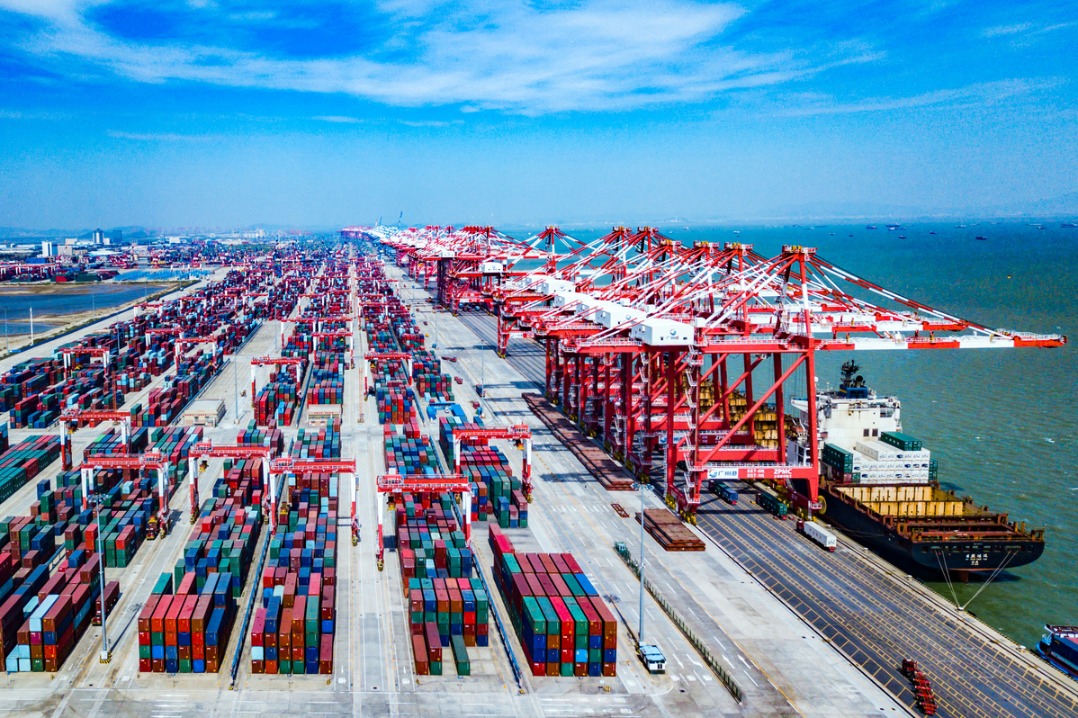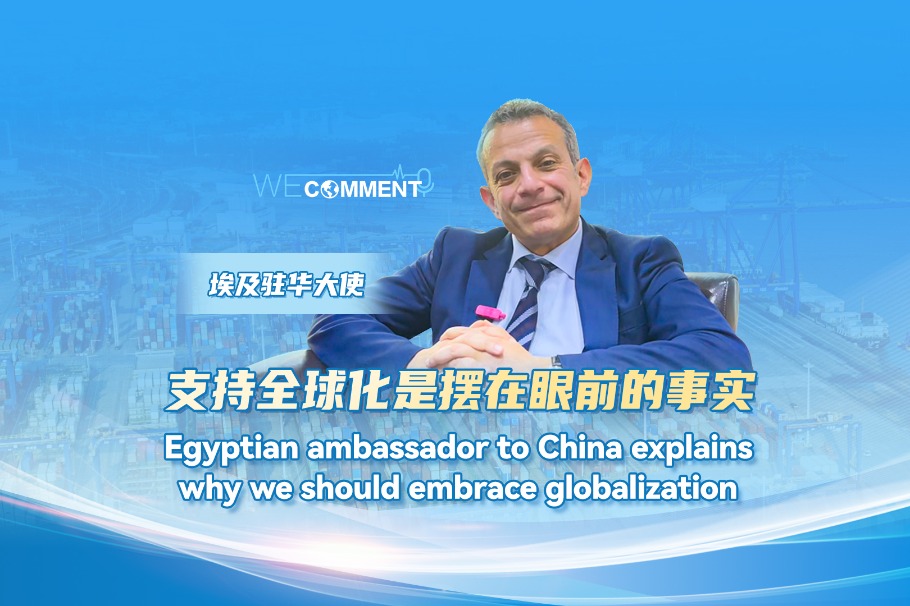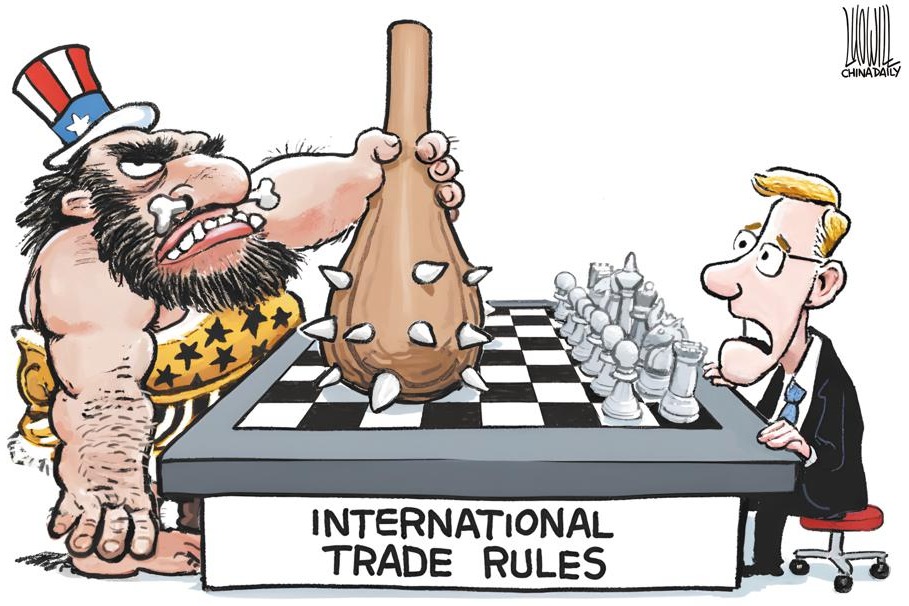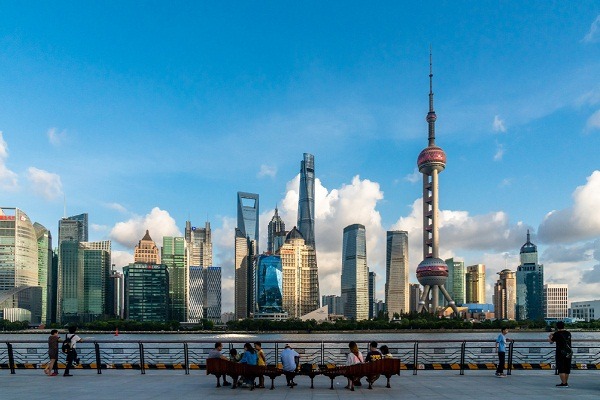Meaningful convergence


China and Germany should work together to promote an early end to the hostilities in Europe on the basis of the principles upheld by both countries
For China and Germany, the year 2022, which marked the 50th anniversary of the establishment of diplomatic relations, stood out once more for their fruitful economic ties. China was already Germany's most important trade partner from 2016 to 2021, and Germany had for many years been the largest European investor in China. In the first half of 2022 these trends continued unabated. The bilateral trade was larger than in any previous six-month period, and German investment in China also reached a record high for any half-year period, although the figures for the second half of 2022 may be lower due to the pandemic situation.
A survey published by the German Chamber of Commerce in China at the end of 2022 boded well for the years to come. More than half of the participating German companies stated that they will expand investment in China over the next two years. For 2023, half of the German companies in China expect an increased business turnover, and more than one-third anticipate higher profits. Small wonder therefore that only 1 percent of the companies said they plan to leave China within the next two years.
A decade ago, this state of affairs would have been praised by politicians both in China and Germany. Indeed, in the Joint Declaration adopted at the intergovernmental consultations in 2011, both governments expressed their desire to increase bilateral trade by about 50 percent until 2015.
But particularly in 2022, a different narrative has emerged in Germany and Europe. Bilateral trade with and investment in and from China are now often viewed in terms of dependency to be avoided. In Germany, both the Foreign Ministry and Economic Affairs and Energy Ministry adhere to this position, whereas the Chancellor's Office takes a more positive stance.
The major reason for this about-face is the crisis in Ukraine and the ensuing decoupling of the Russian and European economies. Suddenly, Europe has had to make do without Russian gas and oil, and a large number of European companies have had to give up their investment in Russia.
As this view is liable to cast a shadow on future relations it merits closer inspection.
In 2021, 7.5 percent of Germany's exports went to China, and 11.9 percent of its imports came from China. In comparison, the US sent 8.6 percent of its exports to China and received 17.9 percent of its imports from there. German investment in the state of Texas is higher than its investment in China. No wonder therefore that the influential German ifo institute concluded that China plays an important but by no means dominant role for Germany as a supplier or destination.
China's position on the situation in Ukraine is consistent. Director of the Office of the Foreign Affairs Commission of the CPC Central Committee Wang Yi recently pointed out that China has throughout upheld the fundamental principle of objectivity and impartiality. It strives to maintain the international system with the United Nations at the core and the international order based on international law.
Germany's stance, as communicated by Chancellor of Germany Olaf Scholz during his visit to Beijing in November 2022, is compatible with this position. In an article for the US magazine Foreign Affairs, Scholz described as the central question how Europeans can remain independent actors in a multipolar world. He made clear that he does not subscribe to the view that a new Cold War between the United States and China is approaching. Repeatedly since entering office, Scholz has firmly spoken out against "decoupling". It is to be hoped that the new "China strategy" that is currently being developed by Scholz's government will follow these lines.
The intergovernmental consultations due to be held by China and Germany in early 2023 are an appropriate forum to further coordinate both countries' policies. They should join forces to make China-EU relations an anchor of stability and prosperity for the Eurasian continent. That will, however, not be feasible as long as the situation is overshadowed by military confrontation: Peace in Europe is a core concern of all Europeans, a redline that must not be transgressed. Armed attacks on a neighboring country and occupation of parts of its territory are neither a sign of mutual respect nor are they the proper way to handle differences and disagreements. Even less can they be conducive to building a community with a shared future for mankind, a concept that has been developed by President Xi Jinping.
China and Germany should therefore strive to contribute to the early termination of hostilities in Europe on the basis of the principles upheld by both countries, namely the sovereignty and territorial integrity of all states as mandated by the UN Charter. Together, they should oppose the interference by external forces in the internal affairs of states, including by military operations. Both countries should use their influence to bring about an immediate end to the fighting and a withdrawal of all armed forces to internationally agreed borders. Then, peace negotiations that take into account the immediate interests of all states concerned as well as underlying root causes should be held.
Jointly pursuing this goal would be a worthy ambition for China, Germany and the EU. Success in this endeavor could also pave the way for another boost in trade and investment. Perhaps most importantly it would promote China's interest in a Europe that is truly independent from external forces and would be a valuable partner for China in global affairs for decades to come.
The author is a former member of the German Foreign Service and a researcher at the German Studies Center at Tongji University. The author contributed this article to China Watch, a think tank powered by China Daily.
The views do not necessarily reflect those of China Daily.
Contact the editor at editor@chinawatch.cn


































